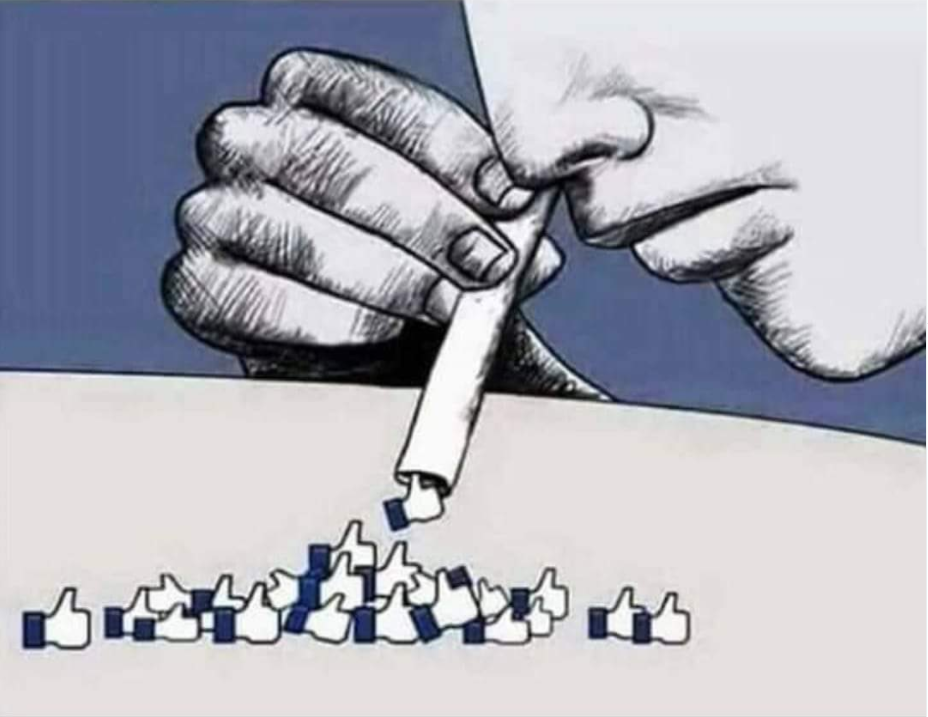You become what you feed your mind.
I’m glad I learned this lesson early on in life by reading. Since I was fifteen, I have been very intentional in letting people into my life, accepting advice, and consuming information.
In a way, I am very lucky.
I am lucky that I wasn’t born into a generation where children were given smartphones, access to the internet and social media at a young age. Their information diet today is filled with a lot of junk.
The modern devil comes in the form of cheap dopamine. Give a child unregulated access to sweets and there will be no control.
The same goes for social media.

This is not to say that parents should forbid social media.
It should be guided.
The benefits of social media and the internet cut both ways. When used for good, you can gain a lot of leverage over what the current education system can provide.
Stand Guard at the Door of Your Mind
If we don’t watch what we let into our mind, we will allow negativity to seep through. Negativity is like pollution; it pollutes the mind and relationships.
Regardless of how smart, savvy or inspired you are, if you don’t guard the door to your mind, you are giving tacit approval of the disempowering, uninspiring, and cynical.
Not taking action is an action in itself.
Intellectual Diabetes
Just as eating healthy is an everyday battle, the internet makes it difficult to find nutrient-dense information. For most of us, we allow mass media and online algorithms to curate our information diet.
When we mindlessly consume information, we’ll end up with intellectual diabetes.
It’s absolutely possible to filter out nutrient-dense information on the internet, it just demands deliberate effort.
News Publications
I don’t follow the news on a day to day basis. There is simply no need to.
If it’s important, the news will seek me.
I have friends who are glued to CNBC, Bloomberg, and several other publications because they must know everything and have a well-informed opinion.
Instead, what they have is a false sense of control.
“To be completely cured of newspapers, spend a year reading the previous week’s newspapers.”
— Nassim Taleb
My friends working in journalism shared how they were trained to write—publish the scariest headlines.
It has to be scary—or else no one will read it.
There’s a lot of competition as publications compete for our attention. To stand out, they have to write headlines that sound important, critical, urgent, and dangerous even for the most minute of events.
The result is a society that is always anxious, pessimistic, and short-term oriented.
As you consume more of this content, you have less time for stuff that matters.
What is Your Average?
We are the average of the five people whom we spend the most time with.
When it comes to our mindset, self-esteem and decisions, we are greatly influenced—whether we like it or not—by those closest to us.
When I was 15, I wanted to surround myself with ambitious, hardworking, and driven individuals.
In a way, I still do, but it has evolved—I want to play long-term games with long-term people.
All benefits in life come from compound interest—money, relationships, learning or health. And there are two factors that determine your outcome: (1) the rate at which you compound, and (2) how long you compound for.
The rate at which you compound is determined by your daily actions—who you choose to hang out with, what your information diet comprises, whether you laze around or choose to workout, read, etc.
How long you can compound for is determined by the work you do and your reputation.
Let me explain.
If we want to be successful, you have to work with others. We have to figure out who we can trust, over a long period of time. We want to be able to keep playing the game with them and collect the reward at the end of the project.
Trust and a stellar reputation will make it easier to play this game. In a long-term game, everybody benefits, it is a positive-sum game.
In a short-term game, everybody focuses on making themselves rich. We become paranoid over whether we would be betrayed. This takes attention and energy away from the work that matters.
Play the long-term game. The returns are greater and it is much more satisfying.
Unsolicited Advice
The reason I wrote this is to remind myself that I become what I feed my mind. I have to be intentional about the conversations I have and the people I meet.
Last night, I met a group of people who advised me on making money, “This is a dog eat dog world, you have to step over others to succeed. You need to learn how to push products, and convince them (clients) to buy, even if they do not need the product.”
I probably should have ended the conversation politely there and then.
They went on to boast how much money they made by charging “cashback” for construction projects, overcharging their clients and pushing financial products that their clients do not need.
I felt irritated nauseated.
Although their advice left no impact on me beyond a bad taste in my mouth, I worry about how someone younger and in critical stages of development will take this advice.
Rejecting bad advice is as important, if not more important, than seeking advice from others. Additionally, developing the judgment to reject advice like this takes time and experience.
Conclusion
I hope this post brought you an awareness of how important it is to be intentional about what you feed your mind. Stand guard at the door of your mind by curating your information diet and spending time with people who inspire you.
If you’d like me to help with this, subscribe to 3-Bullet Sunday today.
3-Bullet Sunday is my free weekly newsletter where I share with you the three most interesting ideas I came across for the week.
I do not share this content elsewhere.
Join others and subscribe to our newsletter today to receive a free investment checklist!


Very timely reminder. Thanks for the great read!